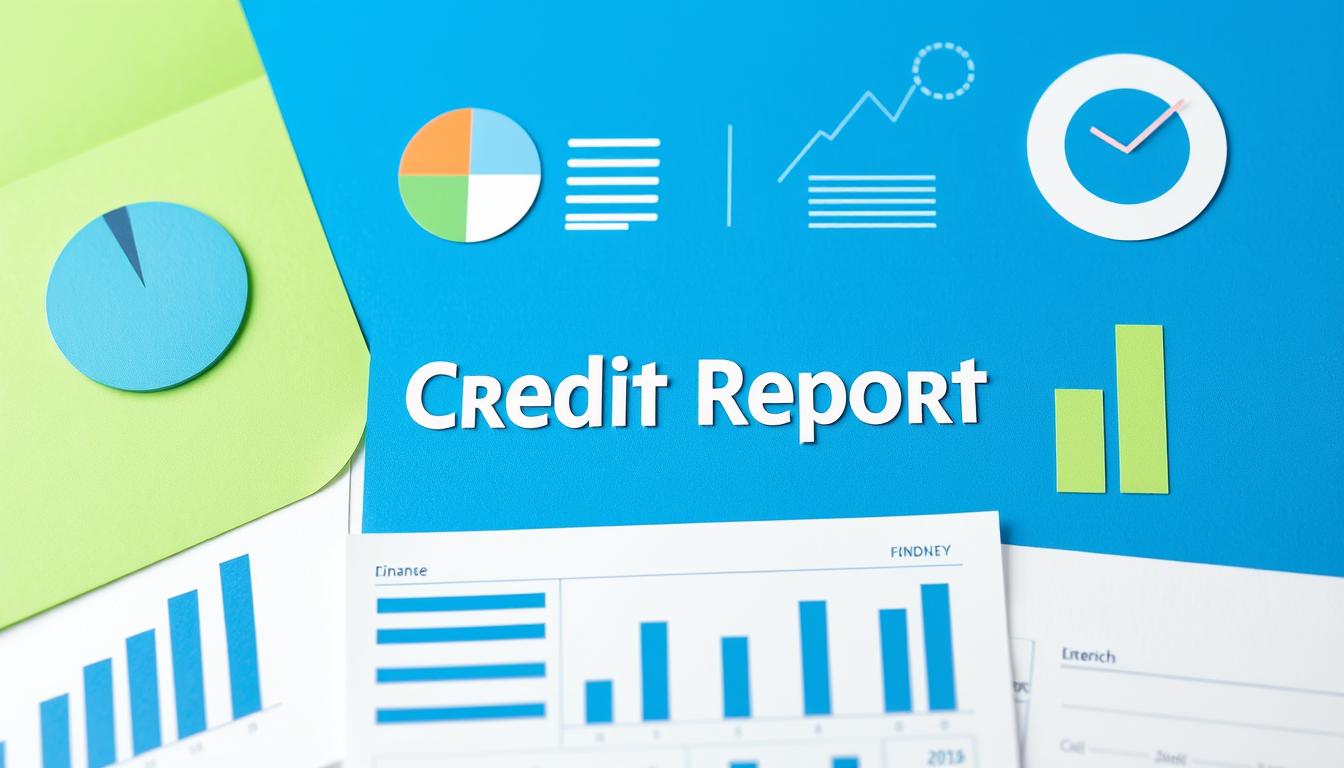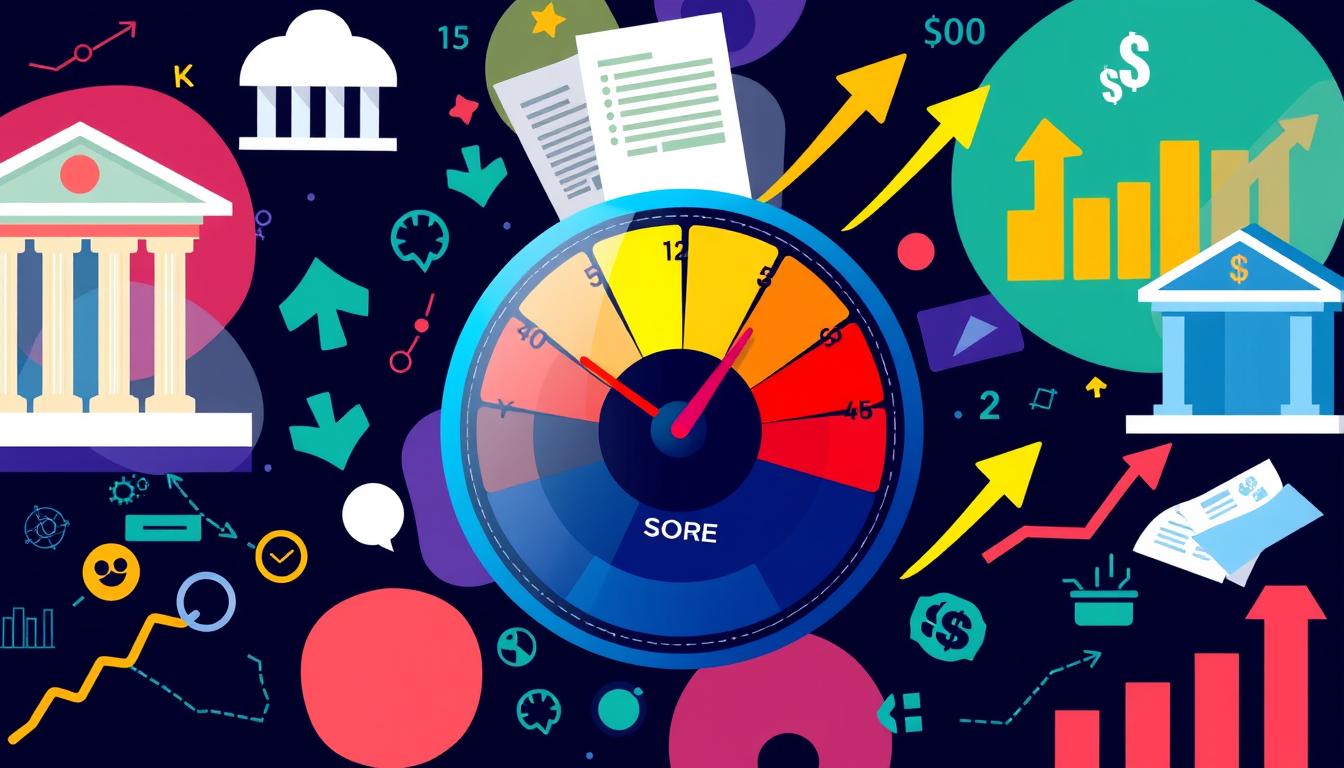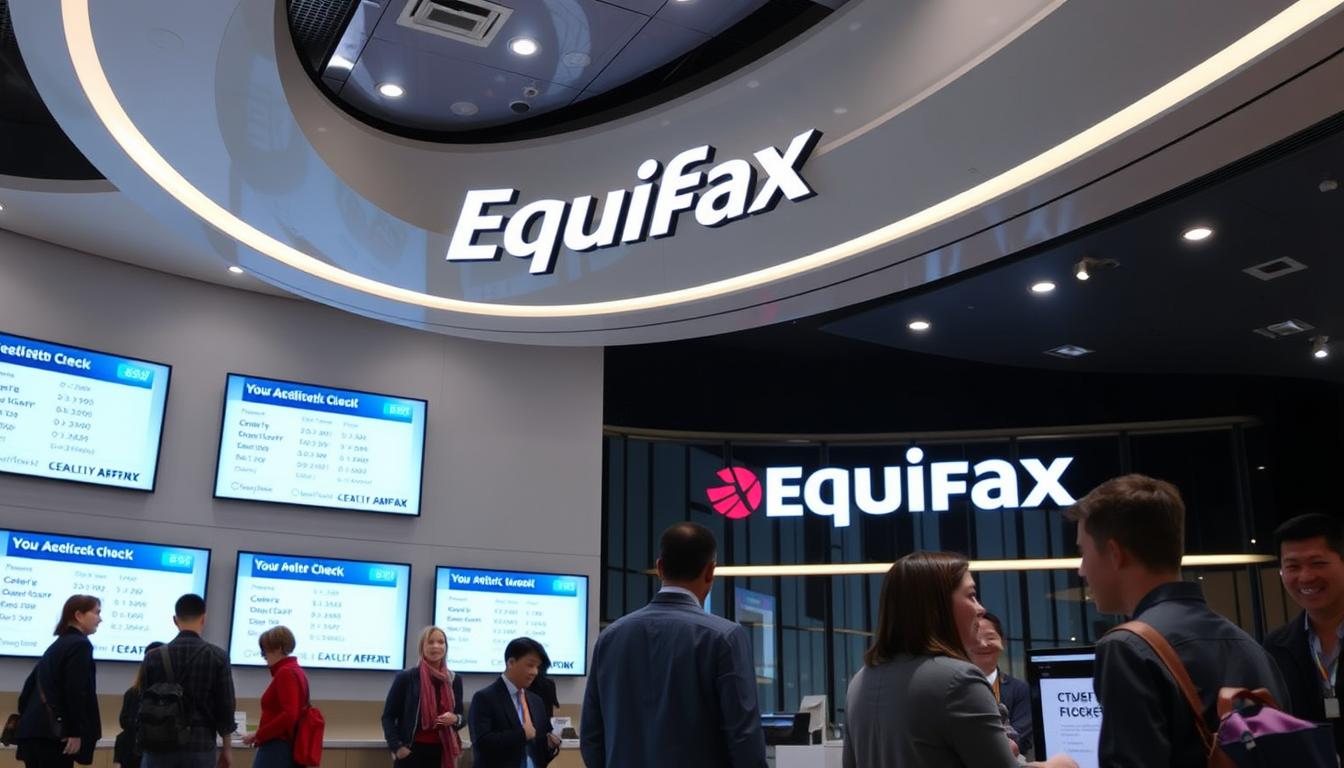Banks often rely on Equifax for credit checks during loan approvals. Understanding this process can help you find the right bank for your needs. Let’s explore which banks use Equifax and how it affects you.
Credit reports play a crucial role in banking decisions. We’ll discuss how to request your Equifax report and what influences your credit score. This knowledge will empower you to make informed financial choices.
Key Takeaways
- Equifax is one of the three major credit reporting agencies in the United States.
- Banks use Equifax credit reports to assess an individual’s creditworthiness when applying for a loan or account.
- Understanding your Equifax credit report and score can help you identify the best banks for your financial needs.
- Regularly monitoring your Equifax credit report can help detect errors and protect against identity theft.
- Improving your Equifax credit score can increase your chances of loan approval and better interest rates.
Understanding the Role of Equifax in Banking
Equifax is vital in banking and credit. It’s one of three major U.S. credit bureaus, along with Experian and TransUnion. Equifax collects and maintains detailed information about consumers’ credit histories.
What is Equifax?
Equifax is a consumer credit reporting agency operating since 1899. It gathers data from credit card issuers, lenders, and public records. This information creates detailed credit reports for individuals.
These reports help banks and financial institutions assess loan applicants’ creditworthiness. They provide crucial information for making lending decisions.
Equifax and Credit Reporting
The equifax credit report is a key tool for banks and lenders. It helps evaluate an individual’s credit history and loan eligibility. The report includes payment history, credit utilization, and any derogatory marks.
Credit bureaus used by banks use this data to calculate a credit report for bank account. This determines the applicant’s creditworthiness. Banks rely on this information to make informed lending decisions.
“Equifax is a critical component of the credit ecosystem, providing lenders with the information they need to make informed decisions about extending credit.”
Understanding Equifax’s role helps consumers navigate the credit landscape better. It ensures they can find the right financial institutions for their needs. Knowledge is power when it comes to managing your credit effectively.

Banks that Use Equifax for Credit Checks
Many banks use Equifax to evaluate loan applications. Major institutions like Wells Fargo, Chase, Bank of America, and US Bank rely on Equifax’s credit reporting services. These banks are known for using Equifax in their credit check process.
Credit bureau usage can differ between banks. It’s important to ask your bank about their credit check process. This knowledge can help you prepare better for loan applications.
| Bank | Uses Equifax for Credit Checks |
|---|---|
| Wells Fargo | Yes |
| Chase | Yes |
| Bank of America | Yes |
| US Bank | Yes |
Understanding which banks that use Equifax is crucial for consumers. It helps them make informed decisions about their finances. Knowing about credit bureaus used by banks allows people to take steps to improve their creditworthiness.

“Knowing which credit bureaus a bank relies on can be a game-changer for borrowers looking to secure financing.”
The Importance of Credit Reports in Banking
Credit reports and scores are crucial in banking and loan approval. Banks use this data to assess lending risks. They make decisions on loan approvals, interest rates, and credit limits.
Monitoring your credit report helps detect and prevent identity theft. This is vital when opening new accounts or applying for loans.
Credit Scores and Loan Approval
Lenders use credit scores to determine loan approval and terms. Higher scores often lead to better terms and lower interest rates. Lower scores may result in higher rates or loan denials.
Credit Monitoring and Identity Protection
Regular credit monitoring helps you track your financial health. It allows you to spot signs of identity theft quickly. You can identify suspicious activity, like unauthorized inquiries or new accounts.
Swift action protects your identity and financial well-being. This is crucial when dealing with banks and other financial institutions.
| Key Benefits of Credit Monitoring | Potential Consequences of Identity Theft |
|---|---|
|
|
Understanding credit reports and scores is key to financial well-being. It helps you make smart decisions about your money. You’ll have better chances of getting good loan terms and banking services.

“Maintaining a good credit score is essential for securing the best loan terms and access to financial services.”
What Bank Uses Equifax for Credit Checks?
Many banks use Equifax credit reports to evaluate loan applications. Major banks like Wells Fargo, Chase, Bank of America, and US Bank often rely on Equifax data.
Knowing which banks use Equifax is vital for borrowers seeking loan approval. This knowledge helps individuals improve their Equifax credit scores and boost their financial opportunities.
| Bank | Uses Equifax for Credit Checks |
|---|---|
| Wells Fargo | Yes |
| Chase | Yes |
| Bank of America | Yes |
| US Bank | Yes |
Banks may use different credit bureaus based on loan type and other factors. Always ask your lender about their specific credit reporting requirements.
“Knowing which banks use Equifax can give you a strategic advantage in the lending process.”
Staying informed about Equifax-using banks helps you manage your credit profile better. This knowledge can lead to greater financial success in the long run.

Requesting Your Equifax Credit Report
Keeping track of your credit report is vital for financial health. You can easily get your Equifax credit report online or by mail. Let’s look at your options.
Online Requests
The quickest way to get your Equifax report is through AnnualCreditReport.com. This free service provides access to reports from all three major credit bureaus. Visit the website and follow the steps to view your Equifax report online.
Mail Requests
To request by mail, download the Equifax Credit Report Request Form. You’ll find this on the Equifax website. Include a copy of your government ID and proof of address.
Mail the completed form to the address on the Equifax website. Reviewing your report regularly helps monitor your credit health. It also ensures the information is accurate.
By requesting your report, you can spot and fix issues affecting your creditworthiness. This helps maintain your overall financial well-being.
Factors Affecting Your Equifax Credit Score
Your Equifax credit score reflects your creditworthiness. It impacts your ability to get loans and credit cards. Knowing what affects your score helps you manage your financial health better.
Several key factors shape your Equifax credit score:
- Payment History: Timely payments on debts are crucial. This factor has the biggest impact on your score. Late or missed payments can hurt your credit.
- Credit Utilization: This is how much of your available credit you’re using. Keeping it under 30% can boost your factors affecting credit score.
- Length of Credit History: Longer credit histories are better. Well-managed old accounts can improve your score.
- Types of Credit Used: Having different types of credit shows responsible management. This includes credit cards, loans, and mortgages.
- Recent Credit Inquiries: New credit applications can lower your score temporarily. Limit how often you apply for credit.
| Factor | Impact on Credit Score |
|---|---|
| Payment History | Most important factor, up to 35% of the score |
| Credit Utilization | Second most important factor, up to 30% of the score |
| Length of Credit History | Up to 15% of the score |
| Types of Credit Used | Up to 10% of the score |
| Recent Credit Inquiries | Up to 10% of the score |
Understanding these factors affecting credit score helps you maintain a healthy Equifax credit score. This knowledge can lead to better financial opportunities.
Improving Your Equifax Credit Standing
A strong credit profile is vital for better loan terms and financial opportunities. Two key factors affect your Equifax credit standing: payment history and credit utilization.
Payment History
Payment history makes up 35% of your credit score. It’s crucial to pay all credit accounts on time.
This includes credit cards, loans, and bills. Even one late payment can hurt your credit profile.
Credit Utilization
Your credit utilization ratio is the amount of credit you use versus your total available credit. Experts suggest keeping this ratio below 30%.
Managing your credit card balances can boost your credit score. This shows responsible borrowing habits and improves your creditworthiness.
- Making all payments on time is crucial for maintaining a strong payment history.
- Keeping your credit utilization ratio below 30% can have a positive impact on your credit score.
- Combining responsible payment habits and low credit utilization can significantly improve your Equifax credit standing.
“Consistency is key when it comes to building a healthy credit profile. By prioritizing on-time payments and managing your credit utilization, you can take meaningful steps towards improving your credit score with Equifax.”
Choosing the Right Bank for Your Financial Needs
Finding the right bank involves more than just looking at their credit bureaus. Several factors come into play when selecting a financial institution. Your needs should guide your choice.
Examine the product offerings of different banks. Check if they have the accounts and loans you need. Look for special features that align with your financial goals.
Consider the fees associated with each bank’s accounts and services. Find an institution with competitive rates and minimal hidden charges. This can save you money in the long run.
Customer service is crucial when choosing a bank. Read reviews to gauge the level of support you can expect. A bank that values its clients can greatly improve your banking experience.
The ideal bank offers a mix of good credit check practices and product selection. It should also have reasonable fees and excellent customer service. Take time to compare options before making your decision.
| Bank | Credit Bureaus Used | Checking Accounts | Savings Accounts | Loan Options | Customer Service Rating |
|---|---|---|---|---|---|
| Chase Bank | Equifax, Experian, TransUnion | Free Checking, Premier Plus Checking | Chase Savings, Chase Premier Savings | Mortgages, Auto Loans, Personal Loans | 4.5/5 |
| Bank of America | Equifax, Experian, TransUnion | Advantage Plus Checking, Advantage Relationship Checking | Rewards Savings, CMA Savings | Home Loans, Auto Loans, Personal Loans | 4.2/5 |
| Wells Fargo | Equifax, Experian, TransUnion | Everyday Checking, Clear Access Banking | Way2Save Savings, Platinum Savings | Mortgages, Auto Loans, Personal Loans | 3.9/5 |
Your chosen bank should help you reach your financial goals. Consider all aspects to find the best fit for your needs. This approach ensures a positive banking experience overall.
Conclusion
Equifax plays a crucial role in banking and loan approvals. Many banks use Equifax credit reports to assess customer creditworthiness. A strong Equifax credit score is vital for loan applications and new bank accounts.
You now understand what banks use Equifax and how to request your credit report. This knowledge empowers you to navigate the banking system confidently. We’ve shared tips to improve your credit standing and secure your financial future.
This article has provided essential information for making informed financial decisions. A strong Equifax credit report opens doors to financial opportunities. Take steps to protect and enhance your credit profile.

